Detroit Needs New Policies That Can Drive Growth While Protecting Current Residents
New Report Charts a Course Forward
Arlington, VA (October 12, 2015) – With Detroit rebounding from bankruptcy and beginning to see rapid redevelopment, some fear the revitalization will end up pushing out low-income and minority residents. But a new report from our Detroit Program lays out key elements for how the city can successfully implement an inclusive growth strategy that grows the economy while protecting current and future residents.
The report, “Toward Inclusive Growth in Detroit,” addresses scenarios for cultivating mixed-income neighborhoods where people of different income levels, education levels and races can live, work, and grow together. The report also outlines a methodology for an investing strategy that supports inclusive growth.
“Research shows that such neighborhoods can increase economic opportunity and mobility for all residents–particularly those with low and moderate incomes,” said Bradford Frost, director of the Detroit Program and one of the report’s co-authors. “Yet few policies in Detroit address this shared knowledge in a way that recognizes the unique characteristics, strengths, and trajectories of Detroit’s diverse neighborhoods.”
One challenge is bringing the right groups of people together for success. To succeed, the report notes, Detroit will require cooperation among residents, associations, philanthropists, and governments at the local, state and federal level.
To achieve this, the report lays out the following steps:
-
Engage community leaders in discussions around current trends and whether those trends will cultivate healthy mixed-income communities;
-
Collect more market data, including a review of the available and required real estate capital sources;
-
Craft development scenarios that maximize which land use, growth, and development policies the City of Detroit will support and enforce;
-
Secure commitment from Community Development Financial Institutions (CDFI) and philanthropic partners to develop patient, long-term financing tools that will support inclusive growth of mixed use and single family housing, while preserving affordable housing.
Meanwhile, the report maps out a path groups can follow to successfully invest in ways that can drive inclusive growth. This includes:
-
Driving investments to achieve strategic density targets in Detroit’s mixed-use corridor areas
-
Collaborating with other community financial institutions and the City of Detroit to make sure money is being invested in the right projects
-
Developing a portfolio and neighborhood approach to achieving an income mix commensurate with the region’s profile
-
Ensuring there’s enough high-quality, low-income housing so that current residents aren’t forced out of their neighborhoods
-
Collaborating with workforce initiatives and other wealth-building or opportunity enhancing efforts to help individuals and households rise from poverty
-
Developing policies and development practices aimed explicitly at reducing concentrated poverty in Detroit
Ongoing data-sharing between lenders, developers, community groups and City government can help everyone stay on top of the changing real estate market and inform decision-making around mixed-income communities,” said Elizabeth Luther, Detroit Program Manager and a co-author of the report. “This study has helped us understand how and where market rate developments may, if managed well, enhance rather than inhibit neighborhoods’ economic health.”
The intention is to create a blueprint for the short and medium terms for investment practice, while a long-term view on the neighborhoods that will enhance opportunity for all in Detroit.
“For over a decade, Capital Impact has worked to invest in projects across Detroit that have increased access to the critical services that benefit all of its residents, regardless of their socio-economic status,” said Scott Sporte, Chief Lending Officer at Capital Impact Partners. “The analysis in this report is invaluable in informing the investment strategies of many organizations, including ours, to ensure future development continues to be inclusive.”
For its part, Capital Impact Partners has helped finance more than 10 percent of new and rehabbed housing units in Detroit’s greater downtown since 2010, and has already invested some $100 million in Detroit. Examples include:
-
Rainer Court: The 2015 ribbon cutting hosted by JPMorgan Chase’s Jamie Dimon and Mayor Mike Duggan, highlighted the re-opening of this 1920’s building, creating market-rate housing and retail space that will attract students and young professionals back into the city’s core. This marked first loan made through the JPMorgan Chase supported Detroit Neighborhoods Fund.
-
R. Finn Apartments: The purchase and renovation of this 22,000 sq. ft. building, built in 1922, will support 28 new units of rental housing and 2 small retail sites.
-
Shoppes at Woodward Place: This $3.1 million transaction with Midtown Detroit Inc., IFF, Invest Detroit, and Detroit Development Fund supports longtime partner Midtown Detroit Inc.’s purchase of eight storefronts at the intersection of Woodward Avenue and Grand Boulevard. The mixed-use project will rehabilitate the 56,000-sq.-ft. property by creating 11 commercial units and 25–30 rental housing units right on the new M-1 light rail line that will link midtown and downtown Detroit.
-
The St. Regis House: Due to come online in late 2015, this project will offer needed housing in the New Center area of Detroit as a result of a $3.6 million loan closed with Joe Barbat and Dave Ebner. Rents are expected to be set at market-rate prices as well as rates that are affordable for workforce households. The project will help expand economic revitalization beyond Detroit’s central neighborhoods and create 17 full-time jobs.
-
Granada Apartments: $1.5 million in financing supports the acquisition and rehabilitation of 80 units in northwest Detroit called Granada Apartments. This affordable housing complex is in close proximity to high-quality schools, health care, and grocery options.
This study, however, is merely the beginning of a process.
“The Detroit Program plans to conduct more research into the best ways to build healthy, mixed-income neighborhoods. The goal isn’t to price current residents out of the market, as often happens when cities begin gentrifying,” said Frost. “In fact, those residents should be encouraged to remain and help build a more inclusive city. The intention is to work carefully to ensure that Detroit rebuilds in a way that can benefit all its residents, present and future.”
The “Toward Inclusive Growth in Detroit” report helps point the way forward.
###About Capital Impact Partners: Capital Impact Partners transforms underserved communities into strong, vibrant places of opportunity for people at every stage of life. We deliver strategic financing, incubate new social programs, and provide capacity-building to help ensure that low-to-moderate-income individuals have access to quality health care and education, healthy foods, affordable housing, and the ability to age with dignity. A nonprofit community development financial institution, Capital Impact Partners has disbursed more than $2 billion to revitalize communities over the last 30 years. Headquartered in Arlington, Va., Capital Impact Partners operates nationally, with local offices in Detroit, Mich., and Oakland, Calif. Learn more at www.capitalimpact.org.







